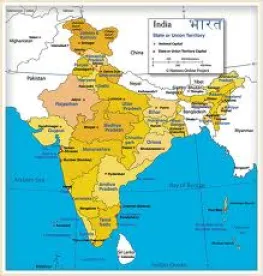In the run-up to Prime Minister Modi’s election campaign last year, focus was placed on the fight against corruption and “black money” leaving India. Black money is cash that has not been declared or taxed and is usually held in tax havens, such as the British Virgin Islands, Switzerland and the Channel Islands. It is estimated that Indian nationals hold approximately $500 billion (equivalent to £297 billion) in black money offshore.
Media reports revealed that the identities of over 600 Indian nationals holding bank accounts with an HSBC branch in Geneva in 2011 had been leaked to the previous government by an employee at the bank. However, the government had failed to act on the information.
In May of this year, one of the Modi government’s first actions was to establish a special task force to trace illicit money held by Indian nationals in overseas bank accounts. Last month, the new government offered up the names of seven individuals on the “HSBC list”, though this led to criticism that the government was “drip-feeding” the information and protecting the identities of powerful individuals. The Supreme Court stepped in; ordering the government to provide the names to a special investigative team despite the government’s assertion that disclosing the names would infringe international agreements. Modi has since defended the administration, assuring the public that the government remains committed to getting “black money back to India.” In a speech to the public on November 2, 2014, Modi claimed that efforts to bring back black money were on the right track.
India’s reignited drive to tackle the issue of black money presents an interesting issue for financial institutions. Up until last month, HSBC was able to refuse the Indian government’s request for further information, citing banking secrecy laws and the fact that India was relying on information stolen by a former HSBC employee. However, following negotiations between the Indian and Swiss governments, Switzerland agreed to release information relating to the foreign account holders, in situations where the Indian government conducts an independent investigation and the evidence is compiled in India.
These developments arose despite the fact that India was not one of the countries to sign the Multilateral Competent Authority Agreement (“MCAA”). The MCAA, signed by 51 countries during a meeting of the Organization of Economic Cooperation and Development in October this year, allows for the exchange of information relating to bank accounts, taxes, assets, and income held by persons outside local tax jurisdictions, with the purpose of combating tax evasion at the global level.
Given that India was not a signatory to the MCAA, the country’s continued efforts to bring back black money demonstrates that the MCAA may not be the only avenue for countries wishing to tackle tax evasion. Going forward, governments and financial institutions may come under increased pressure from not only countries signed-up to the MCAA but also countries like India, who continue to address the issue of black money through their own means.



 />i
/>i
